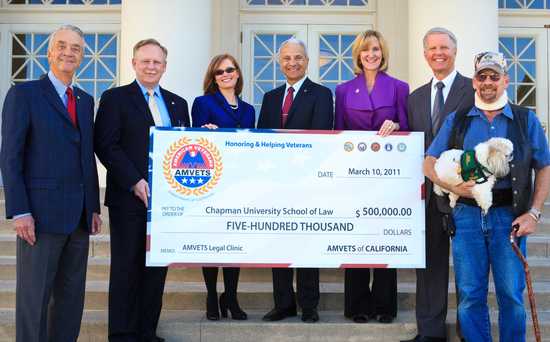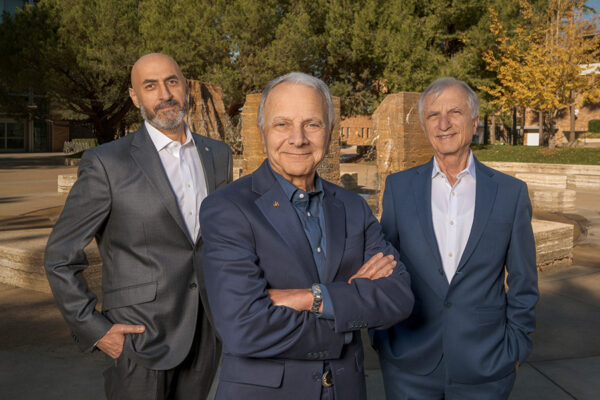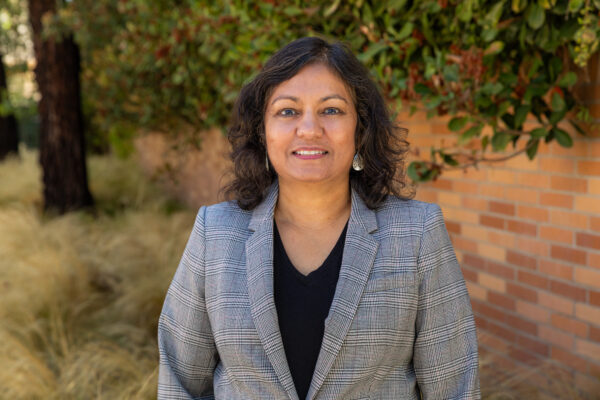It was in the summer desert of Iraq in 2004 when Airborne Sgt. Francisco Ramirez was accidently run over by a Humvee in his own convoy while tracking a cache of weapons that had been used against them. Once evacuated to his base in Italy, he faced multiple surgeries on the shattered femur that he sustained; but that was only the beginning of his troubles on his road to recovery.

After more surgeries and painful rehab on his leg, he was eventually sent home. Sgt. Ramirez, like many returning injured military, was given little direction regarding veteran’s affairs, benefits and rights upon his discharge from active duty. “There was a serious lack of preparation for me and my aftercare wasn’t really thought out,” he said.
He went for years in need of additional rehabilitation and financial support without knowing where to turn for help, and he had no money for legal representation to pursue it. With prompting from military buddies, Sgt. Ramirez turned to the Internet and found the
newly-established
AMVETS Legal Clinic
on the campus of Chapman University.
AMVETS Department of California Service Foundation
is part of the 60 year old non-profit national AMVETS organization that assists veterans and their families.
With help from the free legal service Chapman offers veterans, Ramirez discovered a host of benefits, even retroactive provisions, available to him. “I could have easily fallen through the cracks,” he said, “if I hadn’t found out about this wonderful program. The reward wasn’t just about the money…it was about restoring dignity and not wanting to be forgotten.”
Recognizing a void in the area of legal assistance, AMVETS of California in 2009 granted five years of funding for a pro bono legal aid clinic for veterans in cooperation with
Chapman University School of Law
. AMVETS has committed two and half million dollars, payable at a half million annually. The Board of Directors is pleased with the progress and is helping to provide needed free legal assistance to military veterans, service members and California’s 200,000 military families who face private disputes not covered by the Judge Advocate General (JAG) Corps.
Second and third year students from Chapman School of Law handle the AMVETS clinic clients, under the close supervision of Chapman law professors, who are vets themselves. “Our law students benefit from getting to work on real cases that can change veterans’ lives for the better,” says Kyndra Rotunda, a former Army JAG officer and current Executive Director of the AMVETS Legal Clinic at Chapman. “We are handling a wide range of legal issues, including auto accident cases, VA claims, lease disputes, disability claims, breach of contract actions, and other legal issues stemming from multiple deployments to Iraq and Afghanistan. Many of these matters would otherwise go unlitigated because service members often can’t afford private lawyers and JAG Officers are barred from representing soldiers in private civil legal claims. There’s a big hole in the net that the AMVETS Legal Clinic is filling.”
The AMVETS Legal Clinic changed the life of veteran Steven Connaker who was homeless, living in his car with his dog and in need of medical attention for physical, emotional and drug related disabilities. Connaker said, “My life was on a downward spiral when my case was taken on by the clinic.” Through a number of VA services, disability compensation and other programs, Steven is now on the road to recovery; has an apartment for himself and his dog; and he says, “My life is moving forward again thanks to the lawyers and law students that dedicated themselves to my case.”
“We are very proud of this pro bono veterans program,” says Jim Doti, President of Chapman University. “It is unique in the nation and the concept is growing. We have reached out to other universities to partner with us and model their programs after the AMVETS Legal Clinic.”
Chapman’s Military Law Institute and AMVETS Legal Clinic will be moving from shared space in the campus law building to their own building in a couple of months. “The interest from our law students to participate in this program has been impressive, so we want to accommodate their growing numbers and the partner relationships we are developing throughout the State,” said Tom Campbell, dean of the law school and a former U.S. Congressman. “This kind of educational program provides real legal cases and character-building experiences for our students along with goodwill within the community.”




Add comment